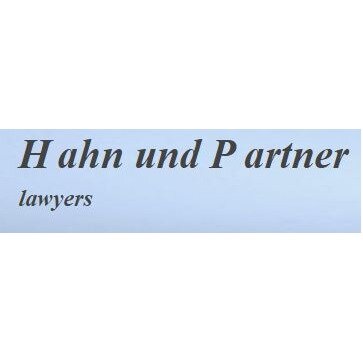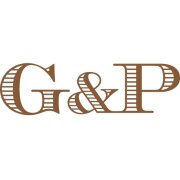Best Sanctions & Export Controls Lawyers in Germany
Share your needs with us, get contacted by law firms.
Free. Takes 2 min.
Or refine your search by selecting a city:
List of the best lawyers in Germany
About Sanctions & Export Controls Law in Germany
Sanctions and export controls in Germany form a critical part of the country’s legal framework to regulate international trade and protect national and international security interests. These laws restrict or prohibit the export, transit, or brokering of certain goods, technologies, and services to specific countries, individuals, or entities as determined by national and international law. Germany, as a member of the European Union, implements both EU sanctions and its own national rules in this field. The aim is to ensure compliance with diplomatic, security, and human rights objectives as well as prevent the proliferation of weapons and the funding of terrorism.
Why You May Need a Lawyer
There are numerous situations where individuals or companies may need legal advice regarding sanctions and export controls in Germany. Common scenarios include:
- Assessing whether a specific transaction or trade deal breaches EU or German sanctions regulations
- Responding to government investigations or audits concerning potential violations
- Applying for licenses or permits to export controlled goods or technologies
- Due diligence during mergers, acquisitions, or joint ventures involving international parties
- Challenging asset freezes or restrictions imposed on businesses or personal accounts
- Reviewing internal compliance policies and implementing employee training programs
- Navigating new or frequently changing regulations affecting supply chains
- Managing disclosures or voluntary self-disclosures after suspecting past violations
- Resolving disputes involving confiscated goods or penalties
Local Laws Overview
The regulatory structure for sanctions and export controls in Germany is primarily governed by a mix of European Union law and German national legislation. Key elements include:
- EU Sanctions Regulations - These are directly applicable in Germany, covering wide-ranging restrictions related to countries, sectors, or groups considered a security risk.
- German Foreign Trade and Payments Act (Außenwirtschaftsgesetz - AWG) - This sets out the legal basis for Germany’s national export controls, including criminal and administrative penalties for violations.
- Foreign Trade and Payments Ordinance (Außenwirtschaftsverordnung - AWV) - Lays out the operational rules for implementing export control measures, including lists of controlled goods and licensing procedures.
- Federal Office for Economic Affairs and Export Control (Bundesamt für Wirtschaft und Ausfuhrkontrolle - BAFA) - The central authority responsible for export licensing and enforcement.
- Germany regularly aligns its laws with international frameworks, such as UN Security Council sanctions and regimes like the Wassenaar Arrangement for dual-use goods.
Non-compliance can result in severe penalties, including fines, imprisonment, reputational harm, and restrictions on business operations. Enforcement is robust, with authorities actively monitoring and investigating potential breaches.
Frequently Asked Questions
What are export controls and sanctions?
Export controls restrict the transfer of certain goods, software, or technology abroad, especially those with military or dual-use potential. Sanctions are official restrictions imposed against countries, individuals, or entities to achieve specific foreign policy goals.
Who enforces export controls and sanctions in Germany?
In Germany, enforcement is primarily the responsibility of the Federal Office for Economic Affairs and Export Control (BAFA) and customs authorities.
Do EU sanctions apply automatically in Germany?
Yes, EU sanctions are directly applicable in all member states, including Germany, without the need for additional national legislation.
What types of goods are subject to export controls in Germany?
Goods subject to controls include military items, dual-use goods (civilian items with military application), certain chemicals, advanced technologies, and sensitive software.
What are the consequences for violating sanctions or export control rules?
Violations can result in substantial fines, imprisonment, loss of export privileges, confiscation of goods, and reputational damage.
How can I check if my transaction is subject to sanctions or export controls?
You should consult BAFA’s lists, EU regulations, and relevant legal advisors to verify whether your products, recipients, or destinations are restricted.
Is a license always required to export controlled goods?
Not always. Some transactions may be exempt or qualify for general licenses, but many controlled exports require prior authorization from BAFA.
Can sanctions affect financial transactions?
Yes, sanctions can prohibit or restrict financial transactions related to targeted countries, persons, or sectors. Banks also conduct their own compliance checks.
How often do sanctions and export control rules change?
Sanctions regimes and control lists can change frequently in response to international events, so continuous monitoring is necessary.
What should I do if I suspect a past violation?
It is advisable to promptly seek legal counsel and consider making a voluntary self-disclosure to mitigate potential penalties.
Additional Resources
Several organizations and bodies provide information and assistance regarding sanctions and export controls in Germany:
- Federal Office for Economic Affairs and Export Control (BAFA) - The main authority for export licenses, regulations, and compliance guidance
- German Customs (Zoll) - Involved in enforcement at borders and providing information on import/export restrictions
- Chambers of Industry and Commerce (IHK) - Offer advisory services and training for businesses
- European Commission - DG Trade - Publishes updates and materials on EU-wide sanctions and controls
For complex cases or ongoing compliance, it is recommended to consult a lawyer with experience in sanctions and export controls law.
Next Steps
If you believe you require legal advice or representation for matters related to sanctions and export controls in Germany, consider the following steps:
- Document all relevant transactions, communications, and decision-making processes
- Review current compliance policies and identify possible gaps or concerns
- Contact a lawyer specializing in sanctions, export controls, and international trade law
- Prepare questions or topics to discuss during your initial consultation
- Stay informed of ongoing changes in sanctions or export control regulations affecting your activities
Seeking timely legal support can help prevent unintentional violations, manage risks, and ensure smooth international operations in line with German and EU law.
Lawzana helps you find the best lawyers and law firms in Germany through a curated and pre-screened list of qualified legal professionals. Our platform offers rankings and detailed profiles of attorneys and law firms, allowing you to compare based on practice areas, including Sanctions & Export Controls, experience, and client feedback.
Each profile includes a description of the firm's areas of practice, client reviews, team members and partners, year of establishment, spoken languages, office locations, contact information, social media presence, and any published articles or resources. Most firms on our platform speak English and are experienced in both local and international legal matters.
Get a quote from top-rated law firms in Germany — quickly, securely, and without unnecessary hassle.
Disclaimer:
The information provided on this page is for general informational purposes only and does not constitute legal advice. While we strive to ensure the accuracy and relevance of the content, legal information may change over time, and interpretations of the law can vary. You should always consult with a qualified legal professional for advice specific to your situation.
We disclaim all liability for actions taken or not taken based on the content of this page. If you believe any information is incorrect or outdated, please contact us, and we will review and update it where appropriate.
Browse sanctions & export controls law firms by city in Germany
Refine your search by selecting a city.















